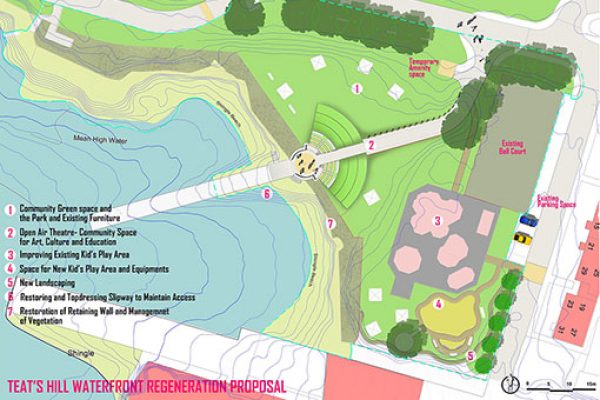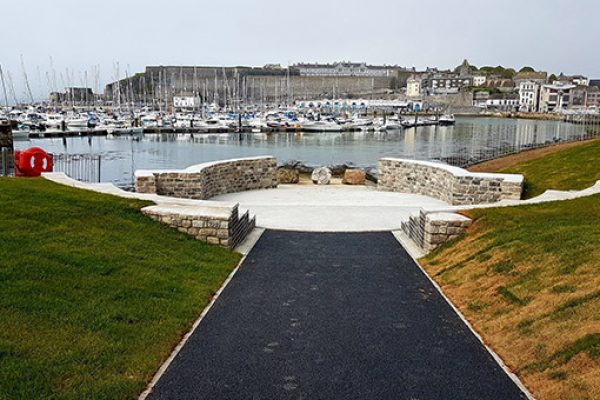BlueHealth researchers have found out which aspects of governance are most important in managing and maintaining interventions in blue spaces, using the Teats Hill site in Plymouth, UK as a case study.
This research, published in the International Journal of Urban Sustainable Development, found that preliminary health and welfare concerns, collaborative stakeholder engagement, adequate funding, and sustainable maintenance are the most salient aspects of urban bluespace infrastructure interventions in Plymouth.
Drawing on the Teats Hill intervention, in-depth interviews with key stakeholders and document analyses were undertaken with a view to discovering what the necessary governance conditions were for urban bluespace infrastructure interventions which promoted human health and well-being in the city.
The analysis revealed areas of contest, such as land ownership arrangements, and how these precluded particular developments from being realised, but also areas of successful collaboration such as continuous stakeholder engagement and public consultation, which were not only seen as vital for the success of an urban bluespace infrastructure intervention at promoting community health and well-being, but also acknowledged as city-wide priorities for such developments in council documents.
Funding: This project has received funding from the European Union’s Horizon 2020 research and innovation programme under Grant Agreement No. 666773. It was also supported by a Commonwealth Shared Scholarship awarded to Miss Evelyn Adade Abrafi and further support was funded by the National Institute for Public Health and the Environment (RIVM), Netherlands.






